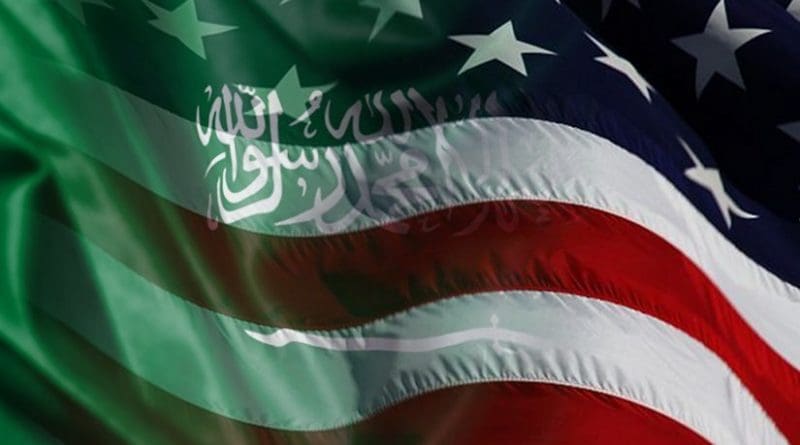Salman-Trump Telephone Diplomacy – OpEd
By Arab News
By Abdulrahman Al-Rashed*
Some troublesome voices disapprove of the exclusion of Saudi Arabia from the list of seven Muslim-majority countries whose citizens are banned from entering the US.
President Donald Trump has not classified Saudis as terrorists, nor has he prohibited them from entering the US. Instead, he discussed with King Salman several regional topics in a phone call that was seen as a very significant shift in Saudi-US relations.
The king and president talked about establishing safe zones for Syrian refugees, cooperation in fighting terrorism in the Middle East, and addressing Iran’s regional activities. The two leaders also discussed bilateral relations, including enhancing economic cooperation, and for the first time the Muslim Brotherhood as a group responsible for terrorist activities.
Moreover, Trump’s phone call with Abu Dhabi Crown Prince Sheikh Mohammed bin Zayed Al-Nahyan clearly indicates Washington’s new regional policy. These are not congratulatory phone calls for Trump, but political conversations about what should be done in the region.
US-Gulf relations went through a rather cold period under former President Barack Obama, and now need to get back on the right track. That requires both sides to unify their visions in dealing with regional issues to end the chaos that started in 2011. They should also strengthen joint efforts to fight terrorist organizations that spread like a cancer in the region.
Trump’s administration sees Iran as part of the problem, unlike the Obama administration, which viewed it as part of the solution. All these significant developments are intended to end chaos in Libya, Syria, Yemen and Iraq, and to coordinate efforts to fight terrorist groups.
Discussing the Brotherhood was no less important than considering Iran the source of chaos. The Islamist organization has played a bad role during Arab Spring-related unrest. It spoiled the Syrian uprising by insisting on converting it from a civilian to a religious revolution. The group also sought to dominate power in Egypt when its candidate won the presidential election.
In Tunisia, the Islamic Renaissance Party tried to dominate power, but external threats and pressures compelled it to back away and commit to democracy. Chaos in Libya is mostly caused by armed Islamist groups affiliated to Al-Qaeda, including the Libyan Islamic Fighting Group, Ansar Al-Shariah and others that do not recognize the state.
Chaos has torn the region apart due to organizations sharing common denominators: Extremist ideologies and foreign influences. The Obama administration adopted a policy of indifference, as it deemed chaos a local issue and transitory phase, and was ready to accept its outcomes. But the reality on the ground was threatening the whole world, widening the scope of unrest and harboring terrorist organizations in states that have collapsed.
Today, there is international consensus to correct such wrong notions, with a collective desire for cooperation to stop chaos, eliminate terrorism and reconsider concepts, methods and alliances. Trump’s government says it is ready to engage in the process of stopping chaos and defeating terrorism.
Trump, who has now been in office for 10 days, has declared his intention to establish safe zones, something Obama declined to do for displaced Syrians, whose number exceeds 12 million at home and abroad.
We are supposed to not be influenced by others’ positions toward Trump, his administration, and internal and external policies. We should not make prejudgments.
More importantly, our vision should be formed through solutions offered by his administration for our region, and its willingness to cooperate positively.
*Abdulrahman Al-Rashed is a veteran columnist. He is the former general manager of Al Arabiya News Channel, and former editor-in-chief of Asharq Al-Awsat, where this article was originally published.

